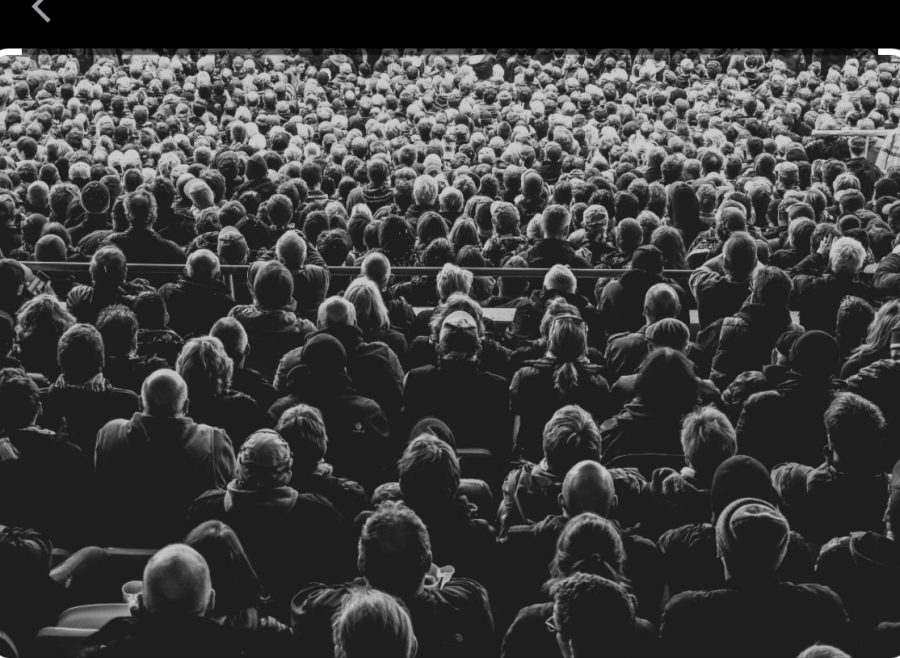Sometimes I catch myself editing a photo and I start wondering who is this even for?
I will take 20 versions of the same picture, pretending I did not try too hard, and then spend another ten minutes making it look “effortless.” It’s ridiculous – but also completely normal. Everyone does it. Right?
This constant awareness of how we appear to others is exactly what Erving Goffman described in The Presentation of Self in Everyday Life (1959). He suggested that social life is like a stage, and that we’re all performers managing impressions depending on our audience. There is a front stage, where we present polished versions of ourselves, and a back stage, where we can supposedly be “real.”
But in the age of social media, that line barely exists. Even our “backstage” – the spam account, the private story, the casual selfie – is still a kind of performance. We might feel authentic, but we’re still aware of being watched. And that awareness changes everything.
Being “authentic” online has almost become its own performance. It is what Marwick and Boyd (2010) call strategic authenticity: showing just enough imperfection to seem real, but still maintaining control over how we are perceived. We are performing realness – and that is kind of the paradox of the digital self.
This is where technology complicates identity. Sherry Turkle (2011) calls it being “alone together.” We are constantly connected through messages, likes, and comments, yet we often feel more isolated than ever. It is like we are all doing endless press tours for our own identities – always “on,” always aware of the invisible audience behind the screen.
Guy Debord’s idea of the Society of the Spectacle (1967) fits perfectly here. He argued that modern life is dominated by appearances – that we do not just live, we display living. In this spectacle, even emotion can become content: vulnerability becomes aesthetic, sadness becomes relatable branding. Everything – even the most personal – can be turned into a performance.
Still, I do not think this means we are fake. Performing does not always mean pretending. It can also mean adapting – expressing different parts of ourselves for different contexts. In a sense, identity is not something we find once and for all – it is something we create and recreate through our interactions, both online and offline.
The danger, maybe, is losing track of who is behind all the versions. Do we know who we are, or do we just know how to present who we are?
Honestly, I do not think there is a clear answer. But maybe that is the point.
If life really is a stage, then our goal should not be to escape performance – it should be to make it meaningful.
To make sure that what we are performing still feels like us.
References
• Goffman, E. (1959). The Presentation of Self in Everyday Life.
• Marwick, A. & boyd, d. (2010). I tweet honestly, I tweet passionately: Twitter users, context collapse, and the imagined audience.
• Turkle, S. (2011). Alone Together: Why We Expect More from Technology and Less from Each Other.
• Debord, G. (1967). The Society of the Spectacle.


Clear explanation of Goffman’s theory and development in digital age. You said you don’t think we are fake, I think you can explore more about why we aren’t fake, is there something we won’t change? or some way to resist the society of spectacle? And, you can give some vivid examples to this phenomenon in digital world.
This blog post is easy to read, with a conversational and engaging style, capturing the reader with a personal anecdote about taking photos at the start. You integrated theories seamlessly and provided a thought-provoking conclusion. Maybe you could include a specific example, or discuss how identity can be warped over specific social media accounts. Furthermore, you could be more critical, asking questions related to who would benefit from this performance of digital (and real) identity. Additionally, you could delve into the topic of if algorithms have an influence on individuals deciding which version of them to present on social media.
This blog weaves Goffman, Marwick & boyd, Turkle and Debord together in a way that feels very natural, not forced – that’s hard to do, and you pull it off. I like how you keep circling back to your own photo-editing habits as an entry point. To deepen it even more, you could add one concrete social media scenario (e.g. finstas, close friends stories, or a specific TikTok “authentic” trend) as a mini case study.